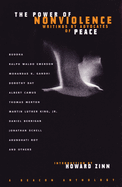 Daniel Berrigan and Thich Nhat Hahn‘s 1975 dialogue Communities of Resistance: A Conversation is the eighteenth chapter of The Power of Nonviolence: Writings by Advocates of Peace . This dialogue leads off the Post-Vietnam to the Present (1975- ) section of the book. Hahn and Berrigan’s hopes for communities of resistance springs from their own experience with religious communities in the Buddhist and Catholic faiths, respectively, and with the experiences of their late mutual friend Thomas Merton.
Daniel Berrigan and Thich Nhat Hahn‘s 1975 dialogue Communities of Resistance: A Conversation is the eighteenth chapter of The Power of Nonviolence: Writings by Advocates of Peace . This dialogue leads off the Post-Vietnam to the Present (1975- ) section of the book. Hahn and Berrigan’s hopes for communities of resistance springs from their own experience with religious communities in the Buddhist and Catholic faiths, respectively, and with the experiences of their late mutual friend Thomas Merton.
We have already discussed Merton’s essay The Root of War is Fear from a previous chapter in the same book. In it, Merton defines the calling of a Christian to “work for the total abolition of war.” Merton reminds us that the place to end war is within ourselves. My comments in the post about Merton’s essay could easily be applied to Berrigan and Hahn: Continue reading Daniel Berrigan & Thich Nhat Hahn discuss Communities of Resistance

